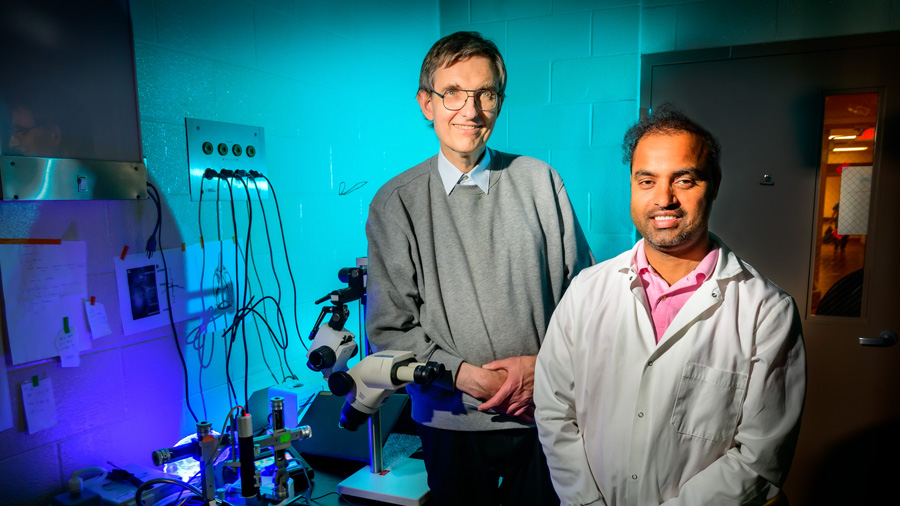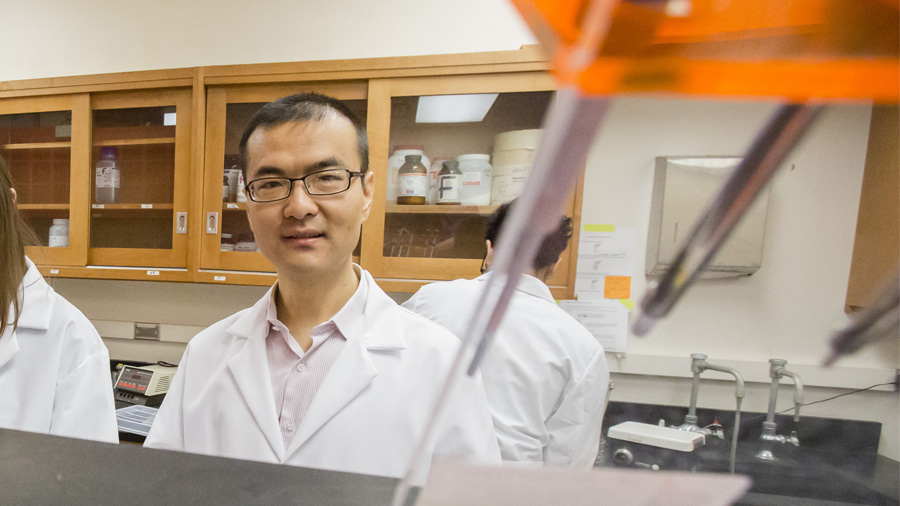Dr. Joe (Huanyu) Qiao, an assistant professor in the Department of Comparative Biosciences, has won the Early Career Toxicologist Award from the Midwest regional chapter of the Society of Toxicology. The award, which honors an outstanding Midwest toxicologist with up to 10 years of professional experience in the field, will be presented at the chapter’s annual spring meeting, to be held on May 14.
In nominating Dr. Qiao for this recognition, Dr. Jodi Flaws, professor of comparative biosciences, described him as “an outstanding scholar in the areas of meiosis and reproductive toxicology.”
“He was the first to identify the mechanisms by which phthalates and water disinfection by-products adversely affect meiosis in the ovary,” she wrote. “His work will lead to the development of better strategies to prevent and treat adverse reproductive conditions.”
High-impact journals in which Dr. Qiao’s research has been published include Environmental Pollution, Biology of Reproduction, Nature, Science, and Communication Biology. Support for his research includes a Pathway to Independence Award from the National Institute of Environmental Health Sciences; an R01 award from the National Institute of General Medical Sciences, which supports technology development from concept, feasibility, and prototype, to demonstrations of biological utility; and an award from the Roy J. Carver Biotechnology Center at the University of Illinois Urbana-Champaign.
In 2020 Dr. Qiao received the Zoetis Award for Research Excellence from the College of Veterinary Medicine. He is also a recipient of the DeLill Nasser Award in Genetics, given to graduate students and postdoctoral researchers by the Genetics Society of America.
Dr. Qiao (pictured at right with an undergraduate research student in the photo above) has been asked to serve as co-investigator on a wide range of topics. He is highly regarded as a teacher and research mentor for undergraduates, graduate students, veterinary students, and postdoctoral fellows. His research lab focuses on three main areas:
- 4D (3D spatial + 1D temporal) meiotic genomes in spermatocytes and oocytes, which could lead to strategies to treat cancer, miscarriage, infertility, and birth defects.
- The roles of SUMOylation (Small Ubiquitin-like Modifier)in meiotic checkpoint pathways, which has the potential to influence new treatments for infertility, miscarriage, birth defects, cancer, neural degeneration, and aging-related diseases.
The effects of environmental toxicants on meiosis, resulting in infertility, miscarriage, and chromosomal birth defects that could impact reproductive health across many generations. Dr. Qiao’s work could lead to therapeutic strategies to prevent these harmful outcomes as well as data to help the U.S Environmental Protection Agency set legal limits on these toxicants.




